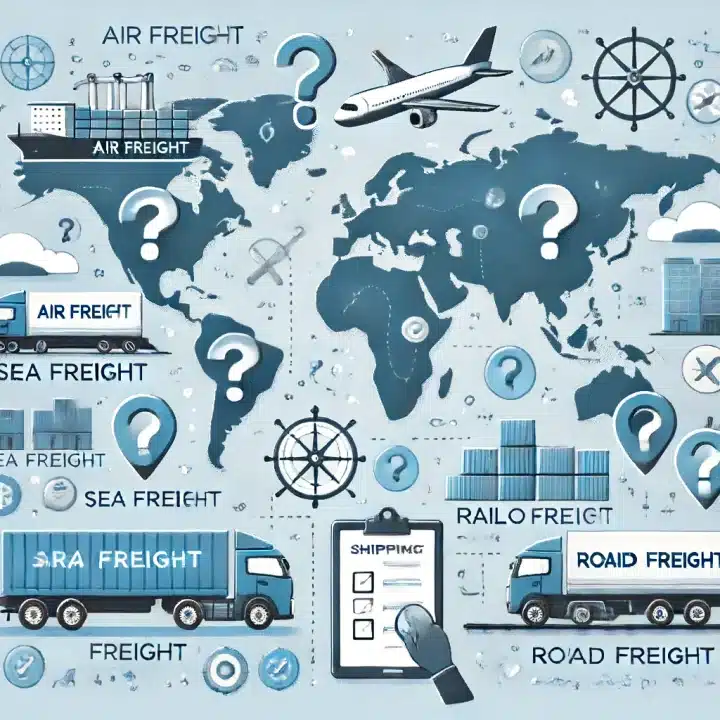Comprehensive Guide to UK to Kuwait Freight Forwarding
Navigating the complexities of UK to Kuwait freight forwarding is essential for businesses looking to engage in international trade between these two regions. Understanding the export procedures in the UK, the import rules in Kuwait, and the various transportation modes available are key to ensuring a smooth shipping process. In this guide, Milky Way Logistics presents everything you need to know about UK to Kuwait freight, with a focus on maximizing efficiency and compliance.
UK Export Procedures for UK to Kuwait Freight
When it comes to exporting goods from the UK to Kuwait, the process begins with identifying whether an export license is required. Certain goods, such as military equipment or dual-use items, need specific permissions. It’s crucial to classify the goods correctly under the UK Tariff to determine applicable duties and any potential restrictions.
Preparing accurate export documentation is a critical step in the UK to Kuwait freight process. The necessary documents include but not limited to:
- Commercial Invoice: Details the goods, their value, and quantity which must include commodity code, weight and value per commodity code and Shipper’s EORI.
- Packing List: Includes packaging details of goods and Assists in customs inspections and inventory checks.
- Bill of Lading: Acts as a contract of carriage between the exporter and the carrier and a proof of shipment.
- Certificates of Origin: Prove the origin of the goods.
These documents must be submitted to HM Revenue and Customs (HMRC) via the National Export System (NES), ensuring compliance with UK customs regulations. This electronic declaration system helps track the movement of goods and ensures all procedures are followed correctly.
Import Rules in Kuwait for UK to Kuwait Freight
For successful UK to Kuwait freight, understanding Kuwait’s import regulations is vital. A Kuwaiti importer must possess a valid import license, which is a prerequisite for clearing goods through customs. Special approvals or permits may be necessary for certain products, including pharmaceuticals, food items, and chemicals, to comply with local safety standards.
Key documents required for import clearance in Kuwait include:
- Commercial Invoice: Must be legalized by the Kuwaiti Embassy in the UK or authenticated by the UK Chamber of Commerce.
- Packing List: Provides detailed information about the contents of the shipment.
- Bill of Lading: Indicates the shipment details.
- Certificate of Origin: Confirms the goods’ origin.
Kuwait’s Public Authority for Industry (PAI) inspects all incoming shipments to ensure they meet the country’s standards. Non-compliant goods may face rejection or re-exportation, making it crucial to adhere strictly to all regulations.

UK to Kuwait Freight
Modes of Transport for UK to Kuwait Freight
Choosing the right mode of transport is crucial for optimizing UK to Kuwait freight. The primary options include air, sea, road, and multimodal transport, each offering unique benefits depending on the nature of the cargo, budget, and time constraints. At Milky Way Logistics we provide a range of services for your freight needs from the UK to Kuwait;
- Air Freight
Air freight is the fastest option for UK to Kuwait freight, ideal for urgent or high-value shipments. Major UK airports like Heathrow and Gatwick offer regular cargo flights to Kuwait International Airport. While air freight provides speed, it is generally more expensive, making it suitable for smaller, time-sensitive shipments.
- Sea Freight
Sea freight is a cost-effective solution for transporting large volumes of goods. UK ports such as Southampton, Felixstowe, and London Gateway facilitate containerized shipping to Kuwait’s Shuwaikh Port. Options like Full Container Load (FCL) and Less than Container Load (LCL) cater to different shipment sizes and budgets. Although slower than air freight, with transit times ranging from 20 to 30 days, sea freight is a reliable choice for bulk shipments.
- Road Freight
While road freight is not feasible for the entire UK to Kuwait journey, it plays a vital role in the initial and final transport stages. Goods are transported by road to UK ports or airports for international shipment. Upon arrival in Kuwait, road transport is used for local delivery.
- Multimodal Transport
Multimodal transport combines different modes of transport, such as road, sea, and air, to optimize cost, time, and efficiency. For instance, goods may be transported by road to a UK port, shipped by sea to a regional hub, and then flown to Kuwait. This flexible approach offers tailored solutions for varying logistics needs.
Conclusion
Successfully managing UK to Kuwait freight involves understanding the UK’s export procedures, Kuwait’s import rules, and selecting the appropriate mode of transport. Whether opting for air, sea, road, or multimodal transport, each option offers distinct advantages that can meet different business requirements.
By staying informed about the latest regulations and best practices in international shipping, businesses can ensure smooth and efficient UK to Kuwait freight operations. This comprehensive understanding not only facilitates compliance but also enhances the overall efficiency of the logistics process, making international trade a seamless experience. For further information on how we can help you in your freight requirements from UK to Kuwait please contact us today.













